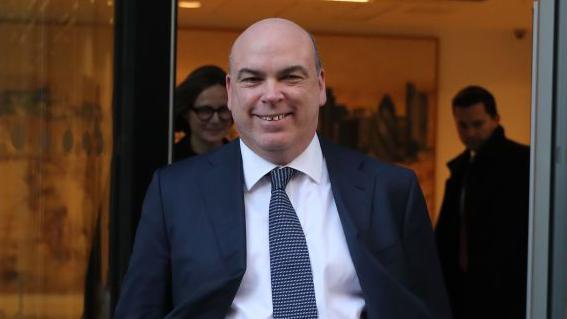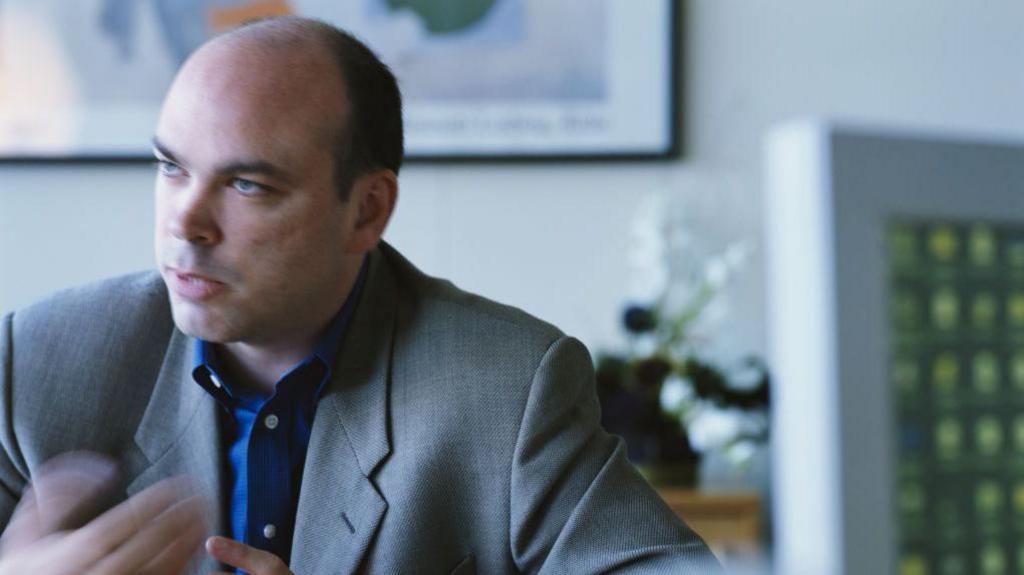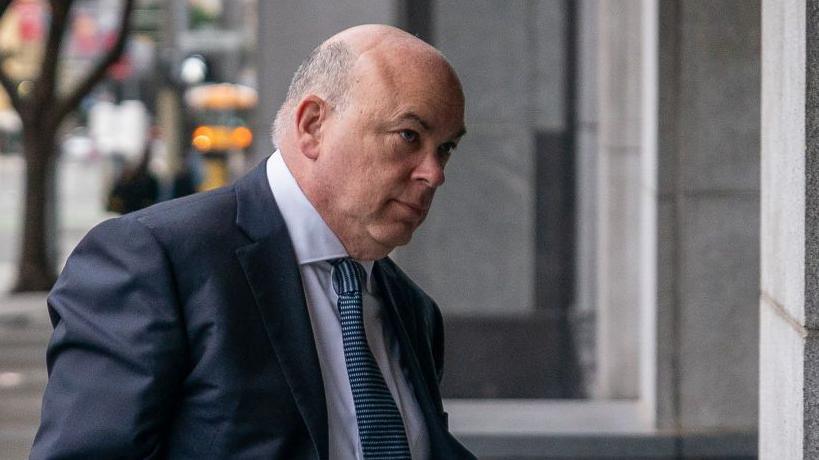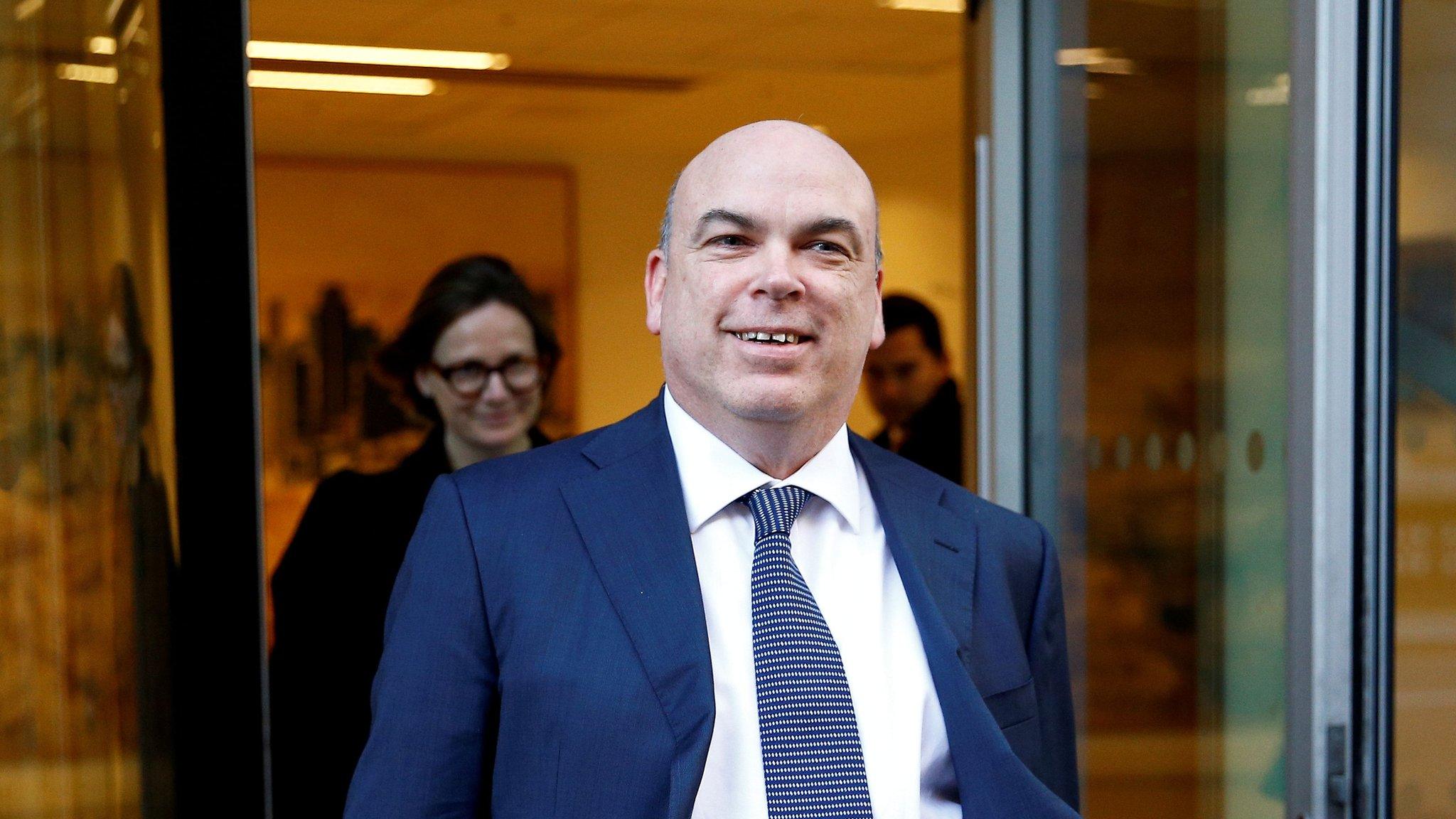British tech tycoon: I only got justice because I'm rich

- Published
The British businessman Mike Lynch, who this June was acquitted in the US of a multi-billion pound fraud, has said he believes he was only able to clear his name because of his huge wealth.
Mr Lynch, 59, was facing two decades in jail if had been convicted of the 17 charges he faced, relating to the sale of his tech company, Autonomy, to US firm Hewlett-Packard.
He told the the PM programme, on BBC Radio 4, that though convinced of his innocence throughout, he was only able to prove it in a US court because he was rich enough to pay the enormous legal fees involved.
"You shouldn't need to have funds to protect yourself as a British citizen", he said.
"The reason I'm sitting here, let's be honest, is not only because I was innocent... but because I had enough money not to be swept away by a process that's set up to sweep you away."
He said most people, even they sold all their assets, would run out of funds in a matter of months, a situation that he said "has to change."
HP & Autonomy
Mr Lynch co-founded Autonomy in Cambridge in 1996.
The software company expanded rapidly, becoming one of the UK's leading tech firms. Its success led to Mr Lynch once being dubbed "Britain's Bill Gates."
In 2011, hardware giant Hewlett-Packard bought the firm for $11bn (£8.6bn) - a deal Mr Lynch made £500m from.
The acquisition soon unravelled though as questions were asked about the enormous price tag.
Just a year later, HP wrote down the value of Autonomy - which it said Mr Lynch had exaggerated - by $8.8bn.
Years of legal battles followed then, in 2018, US prosecutors brought charges against Mr Lynch.
They accused him of inflating the value of the firm by using backdated agreements to mislead about the company's sales, said he had concealed the firm's loss-making business reselling hardware, and also accused him of intimidating or paying off people who raised concerns.
They sought to try him in the US - a move Mr Lynch, who lives in Suffolk, resisted.

Mr Lynch at Autonomy HQ in Cambridge in 2000, the company's heyday
But he was eventually extradited to the US in 2022 to face trial - a process culminated in June this year with Mr Lynch's acquittal.
He testified in court that he was not involved in the transactions being described while his legal team argued HP had failed to properly vet the deal.
Another former finance executive at Autonomy, Stephen Chamberlain, was also found not guilty.
Mr Lynch said the moment he awaited his verdict was "indescribable" and like standing "between two universes".
"Until you hear the words, you can't call it", he explained.
But now that he has been acquitted, he has criticised the government for allowing his extradition in the first place under a treaty which critics - such as Mr Lynch - say makes it far too easy for British people to be tried in the US.
"The British government needs to defend its citizens," he said.
"Is it right to be sending someone to another country, especially one which has the justice system issues of the US?
"A US prosecutor has far more control over you than your local bobby in the British system."
Back to innovating
The charges Mr Lynch was cleared of are not the only legal proceedings arising out of the sale of Autonomy.
In 2019, Autonomy's former chief financial officer Sushovan Hussain was jailed for five years and fined millions of dollars on 16 counts of fraud, securities fraud and other charges.
In 2022, HP won a civil fraud case against Mr Lynch and Hussain heard by London's High Court.
It is now seeking a reported $4bn.
Mr Lynch blamed that on the judge in the case being presented with untested evidence from the US.
He says now though he wants to refocus on his career in tech - saying his recent experiences have given him an interest in how AI can be used in the legal field as well as to help with with hearing loss.
"I want to get back to what I love doing, which is innovating", he said.
- Published23 May 2024

- Published28 January 2022
